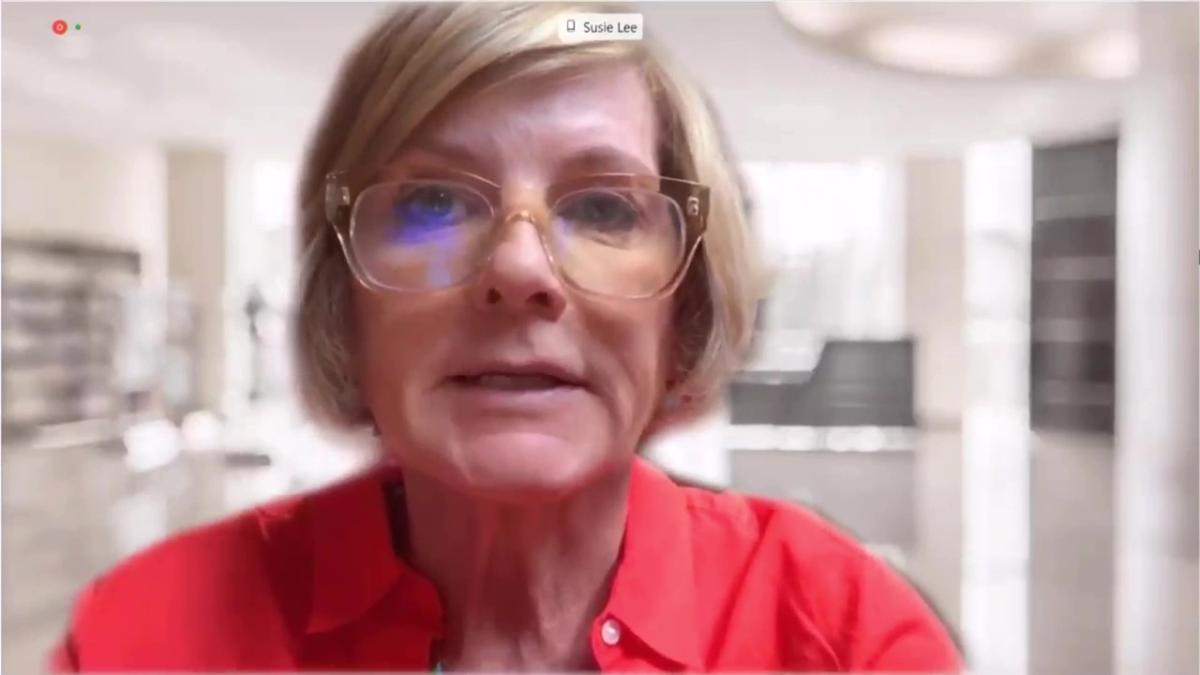Rep. Susie Lee Examines DeVos-led Department of Education’s Failure to Help Students During COVID-19

CLICK HERE TO WATCH ON YOUTUBE
CLICK HERE TO DOWNLOAD VIDEO FILE
Washington, D.C. – Member of the House Education and Labor Committee Rep. Susie Lee (Nev.-03) participated in a hearing examining the impact of the COVID-19 pandemic on America's higher education system and how the U.S. Department of Education has responded.
Rep. Lee highlighted the Sec. Betsy DeVos-led Department of Education's failure to protect higher education students during COVID-19:
"The Great Recession taught us a lot about what may be happening now in the higher education space and in our economy. Following that recession, many people sought out quick opportunities to gain skills and training in order to rejoin the workforce.
"This trend was also coupled with loosened accountability standards, which resulted in exponential growth of for-profit colleges.
"Data suggests we're seeing this again now. We know the track record of for-profit colleges and their predatory tactics used to defraud students.
"Corinthian Colleges and ITT Tech are a couple institutions that abruptly closed their doors, leaving tens of thousands of students strapped with worthless degrees and mounds of debt.
"Unfortunately, Secretary DeVos' Borrower Defense Rule has made it nearly impossible for them to seek relief for this burden – setting the precedent that fraudulent, bad-actor schools are coddled by the government while students and taxpayers are stuck footing the bill."
Rep. Lee asked hearing witness Dr. Sharon Pierce, president of Minneapolis Community and Technical College, how these policy failings are affecting community college students:
Rep. Lee - "How does the Department's failure to protect students from predatory actors hurt the ability of community colleges to serve these students?"
Dr. Pierce - "It has a severe impact on our ability to serve the students. They arrive having used up a great deal of their Pell eligibility or having used up all of their Pell eligibility.
"They also frequently arrive already in debt because they've also taken on additional debt in addition to having used up their Pell eligibility. They arrive with credits or credentials that don't lead to a degree, that don't lead to a living wage, and it makes it very difficult to serve the students and limits what they're able to do.
"They start ten feet behind the starting line, and it makes it that much more difficult to move forward to get to a place where they'll able to actually complete a credential and earn a living wage.
"So instead of a program taking 12 months it takes 24 months, and they are steadily increasing their debt after they've already started out with a deficit to begin with."
BACKGROUND: Rep. Lee's bill to overturn the 2019 Borrower Defense rule was passed by both chambers of Congress with support from both parties and supported by a number of organizations from across the ideological spectrum, including veterans' organizations such as The American Legion. President Trump vetoed her bill on May 29, 2020, leading to the House's vote to overturn his veto on June 26. The final veto override vote was 238 to 173 with 19 members not voting, failing to reach the two-thirds majority needed to pass the House.
While the veto override vote ultimately did not garner the necessary support, Rep. Lee's advocacy and concrete legislation has helped shine a light on the mistreatment of student borrowers, veterans, and taxpayers at the hands of predatory schools aided by Secretary DeVos's weak policies.
Rep. Lee has continued to fight for relief and assistance for students during the COVID-19 pandemic.
While the CARES Act provided relief for most of the nation's student borrowers, recipients of Perkins Loans and commercially held FFEL loans were not included in the original legislation. Rep. Lee helped introduce two separate pieces of legislation that would expand the reach of the student borrower protections to borrowers with Perkins Loans and FFEL loans, respectively.
The COVID–19 Perkins Loan Relief Act would allow the nearly 2 million borrowers with Perkins Loans to forgo making payments on those loans until October, while the Equity in Student Loan Relief Act would allow the same relief for 7.2 million borrowers who took out FFEL loans before they were discontinued in 2010.